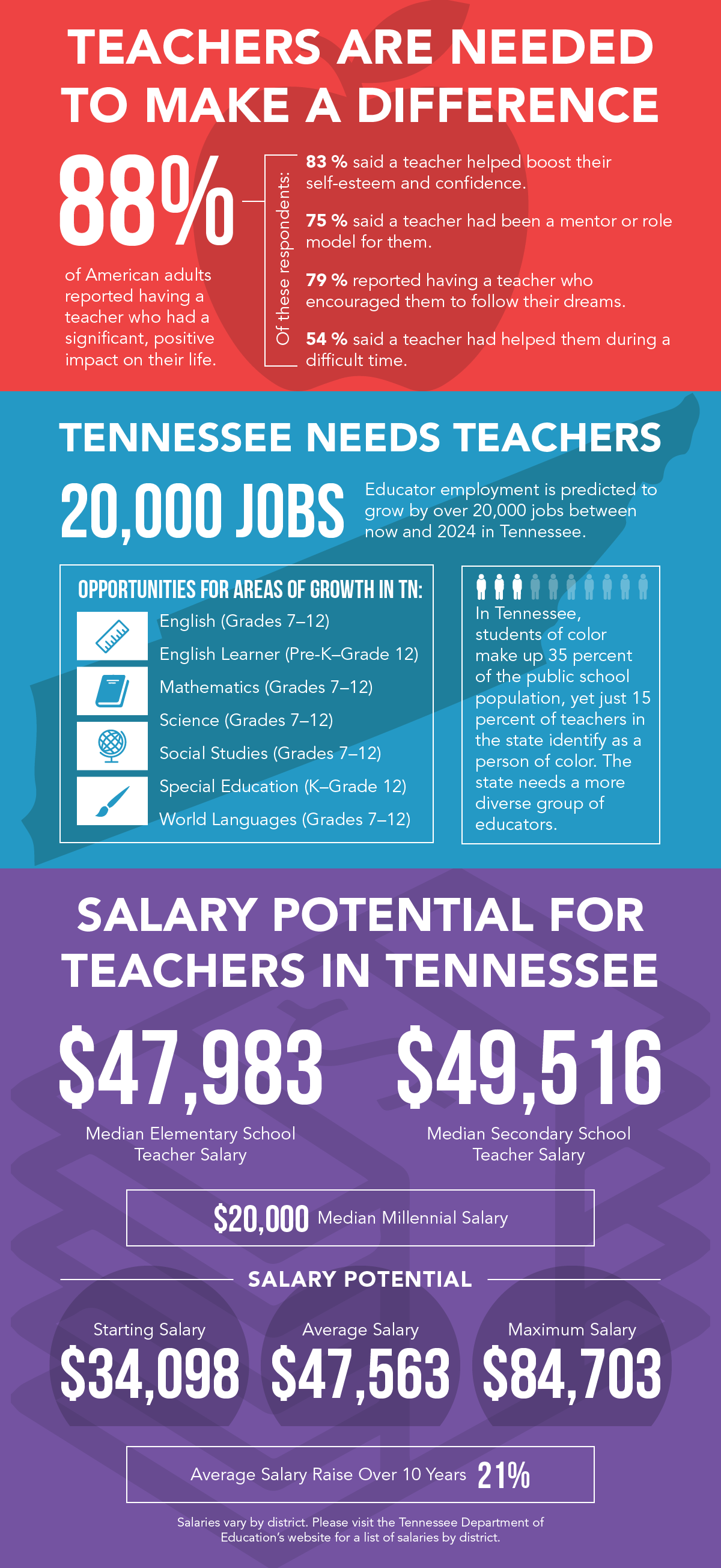Today, the State Collaborative on Reforming Education (SCORE) announced a statewide campaign to recruit millennials into the teaching profession. The campaign–Teach Today. Change Tomorrow–will include statewide radio ads, resources for prospective teachers, and recruiting current teachers to help recruit others into the teaching profession.
I love the forwardness of this campaign to actively recruit the next generation of teachers, and I hope it works in recruiting great teachers. We need teachers out on the front lines showing college students how important education is for our country’s future.
Here’s the press release:
Tennessee needs high-quality teachers across the state, and Teach Today. Change Tomorrow. is committed to helping place a great teacher in front of every student. With more than 20,000 anticipated job openings in education by 2024 in Tennessee, Teach Today. Change Tomorrow. seeks to motivate passionate young people to pursue a career in teaching and ensure future teachers are prepared.
The mission of Teach Today. Change Tomorrow. is to inspire talented young people across Tennessee to become our state’s next generation of teachers,” said Jamie Woodson, SCORE executive chairman and CEO. “By illustrating the positive impact that great teaching has on a community, we will show them that they have the power to change the future beyond the classroom.”
Teach Today. Change Tomorrow. will look to empower millennials to go into the teaching profession. Tennessee has many high-needs schools in rural and urban districts and needs to recruit more STEM (science, technology, engineering, math) teachers, an area where the state faces a critical shortage. Teach Today. Change Tomorrow. will also address the need for more diversity in Tennessee’s teacher ranks. Students of color make up 35 percent of the public school population, yet just 15 percent of teachers in the state identify as persons of color.
The campaign includes a website, TeachTodayTN.org, and presences on Facebook, Twitter and Instagram, supported with statewide radio advertising. The website contains information about the path to an education career, testimonials from current teachers and links to all Tennessee educator preparation programs.
From mentorship through its Ambassador program, made up of teachers and education professionals throughout the state, to providing the tools and information necessary to become a teacher in Tennessee, Teach Today. Change Tomorrow. will be an essential resource for millennials who want to make a difference through teaching.
“Kids all across Tennessee deserve adults who will support them, cheer for them, and are champions for them,” said Cicely Woodard, a teacher at West End Middle Prep. “Our students need more educators who will listen to them and who want them to be successful in the future.”
More information can be found at TeachTodayTN.org.
Partners in this work include the Hyde Family Foundations, Nashville Public Education Foundation, Memphis Education Fund, Public Education Foundation Chattanooga, Conexión Américas, Lipscomb University, Teach for America Nashville, Crisp Communications, Tennessee Charter School Center and the Tennessee Department of Education.
